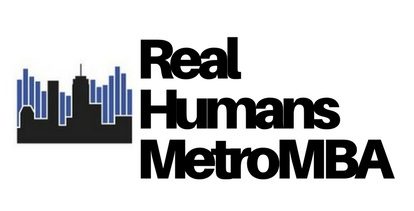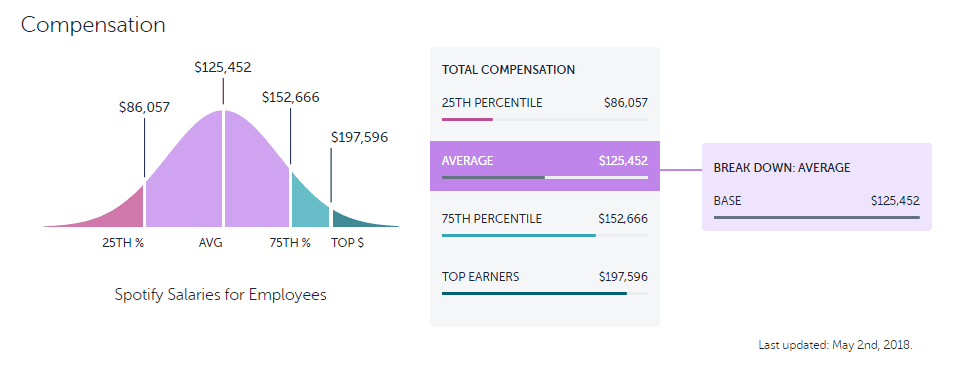New Vanderbilt MBA Deadlines Revealed

Hopeful applicants to the next full-time MBA class at the Vanderbilt Univeristy Owen Graduate School of Management have some new deadlines to remember.
New Vanderbilt MBA Deadlines
Round One
Application Deadline: Oct. 14, 2019
Interview Decision: Dec. 13, 2019
Decision Release: Jan 17, 2020
Round Two
Application Deadline: Jan 6, 2020
Interview Decision: March 27, 2020
Decision Release: April 20, 2020
Round Three
Application Deadline: April 6, 2020
Interview Decision: April 26, 2020
Decision Release: May 22, 2020
Best Real Estate MBAs in the Mid-Atlantic Region

After World War II, a housing boom created a demand for real estate business expertise. Decades later, demand only increased in the wake of the 2008 financial crisis. Now with unprecedented levels of international real estate investment at play, demand for this specialization has reached a fevered pitch.
This rings particularly true for investments in the Mid-Atlantic region where many top real estate MBA programs are headquartered.
Best Mid-Atlantic Real Estate MBAs

Located in Charlottesville, UVA’s Darden Graduate School of Business consistently ranks among the top MBA programs nationally. In addition to Darden’s Real Estate specialization, the Real Estate Club offers alumni connections, internship info sessions, ARGUS training, LEED certification study sessions, and “case competition preparatory sessions.”
The Real Estate Club also participates in the Darden Finance Conference, offering participants the chance to connect with real estate executives in the financial sector. UVA offers in-state tuition of $94,524, $97,524 for non-residents, and $98,796 for international students. Ninety percent of graduates are employed after graduation with a median base salary reported at $125,000.

One out of 10 UNC Kenan-Flagler Business School MBAs complete the school’s Real Estate Concentration, making it one of the largest programs of its kind in the nation. Real Estate MBA students choose from development and/or finance/investments tracks. Here are just a few of the available courses:
- Argus Certification Training
- Financing Real Estate in Today’s Capital Markets
- International Real Estate Investment
- Real Estate Law
- Real Estate Macroeconomics
- Securities Markets
Kenan-Flagler tuition is a hefty $132,648 but the average starting salary is reported at $116,543 with 11 percent of placements in Real Estate.

Founded in 2005, the George Washington School of Business Center for Real Estate and Urban Analysis (CREUA) strives to offer a high-caliber real estate curriculum to both GW graduate and undergraduate students. The Center also conducts real estate research on “walkable urban place development and management,” for which a graduate certificate is offered to MBAs. Tuition at GW is $105,700 and the average starting salary is $96,000.

The University of Maryland at College Park was among the first schools to offer the MRED degree. At UMD Smith, MBA candidates have the option to pursue an MBA/MRED dual degree. Dual degree candidates can expect to begin their studies with MBA coursework and then cross over to MRED focus as the program progresses.
Full-time MBA students can expect to pay $44,766 per year for in-state tuition, while out-of-state students can expect to pay $53,946. Smith reports that 95 percent of its graduates are employed within six months of graduation with an average salary of $114,845.

Georgetown University’s McDonough School of Business is home to Steers Center for Global Real Estate, which aims to provide its MBA students an “industry-grade education that produces students who are uniquely competitive in the global real estate job market.”
The Center’s major selling points are its diversified Four Quadrant curriculum model, immersion in the Washington DC market, and the Real Estate Clinic.
Tuition is $59,700, with an average salary of $116,946 and 98 percent percent of employment-seeking students receiving a job offer within three months of graduation.
Real Humans of the University of Michigan Ross School of Business Part-Time MBA Program

For MBA hopefuls looking to enroll in a part-time program in the United States, there is a certain unspoken caveat. While the part-time is often presented as the malleable, flexible alternative to the traditional full-time program, it is often just a different restrictive version. For many schools, even some of the most prestigious in the country, the choice between full-time and part-time is simply just two options. However, the University of Michigan Stephen M. Ross School of Business has continually expanded the parameters of what a part-time program can truly be.

The Michigan Ross part-time MBA, ranked as the sixth best in the country according to U.S. News & World Report, isn’t simply a longer version of the full-time offering. Rather, the school gives potential students three indelibly different avenues to take. The 60 credit part-time Evening MBA, perhaps the most “traditional” part-time offering from the school, allows students to craft their own academic schedule, with classes offered after work on weeknights, weekends, and online. Some courses can even be taken during the day with the full-time MBA cohort at the school’s Ann Arbor campus. The part-time Weekend MBA offers a more compressed schedule, in comparison, with classes held every other weekend. In contrast to the Evening MBA offering, which takes three-to-four years to complete, the Weekend MBA offering can be finished in just two years.
Two part-time MBA variations may not seem unconventional, but few schools regularly lauded as much as Michigan Ross (10th overall in U.S. News & World Report, 19th globally in Bloomberg) also have the option of an Online MBA.
In late 2018, Michigan Ross introduced its brand new Online MBA program, embracing the ever-changing business school landscape head on. It wasn’t too long ago that the idea of an online degree, never mind an online MBA, was met with heavy skepticism, with major academic institutions sticking with traditional degrees despite the oncoming sea change. And while the inclusion of the online option to its part-time MBA opportunities may have seemed unorthodox at first glace, the administration crafted it as carefully as it does all its MBA programs.
In a recent interview with MetroMBA, Anne Schoen, Associate Admissions Director of Part-Time MBA Programs, talks about how the Online MBA features all-important elements found all of the school’s MBA curriculum:
“One of the signature features of a Michigan Ross MBA is an emphasis on action-based learning, and our Part-Time MBA: Online is no exception. Our three required on-campus residential experiences and required Multidisciplinary Action Project (MAP) course set us apart from other online programs. Our students will enjoy the flexibility of an online program, but also will benefit from engaging in-person with faculty and fellow students during these fully immersive experiential learning projects. These experiences will require that students take the theories they learn in class and apply them to real-world business scenarios. We also will offer our online students full access to our Career Development Office resources, including assistance with on-campus and off-campus recruiting, and individualized career development planning.”
When talking with several Michigan Ross part-time MBA Class of 2020, the school’s expansive options seem to reflect the diverse background of its students, of which include an experienced engineer from Kanpur, India, a former restaurant manager from New England, and a Canadian chemist, among others. Read on to see their stories and what the future may hold for life after an MBA.
Top MBA Recruiters: Spotify

Spotify, arguably the reigning champion of streaming audio content, shared a triumphant Q4 report with its shareholders late last year: “For the first time in company history, operating income, net income, and free cash flow were all positive.”
Ten years in, Spotify’s business model—a combination of premium paid access and “freemium” ad-based access—miraculously legitimized the Napster template to the tune of enormous profits. To make matters complicated, the Swedish company’s resounding success has been a major source of controversy among musicians whose life’s work the platform is built on.
When Spotify shared its year-end round-up metrics late last year, one image made the social media rounds that compared the company’s annual revenue of $1.37 billion to the 1,117,021 streams required for an artist to make minimum wage and a $0.0037 average per-stream royalty.
One might now understand why many high-profile musicians, like Prince, The Beatles, Taylor Swift, and Neil Young, initially refused to stream their music on Spotify. The composer and harpist Joanna Newsom disparaged Spotify in a 2015 LA Times interview as a “villainous cabal of major labels … built from the ground up as a way to circumvent the idea of paying their artists.”
But the platform’s growing power and presence have coerced musicians to play ball, even if they are reluctant to do so. Whether Spotify’s overall operating structure and approach to content distribution is viable for the long-term remains to be seen.
For MBAs looking for a way to help musicians from inside the belly of the beast, let’s take a look at employment at Spotify.
Landing a Spotify Job
Known for its constant intake of employees, Spotify maintains several divisions and publishes both job openings and internship opportunities. Employees report that internal referrals, stand-out experience and direct engagement are the best way to get hired.
Spotify’s HR team reports receiving hundreds of thousands of resumes each year. So, an early career MBA’s best bet at landing a permanent position may be to secure an internship. Seasoned business leaders would do well to draw the attention of Spotify’s Acquisition Team.
Spotify Job Salaries
According to Paysa, a comprehensive salary comparison tool, those in product management roles at Spotify can expect to earn salaries that average more than $190,000 per year. Even the rough average salary for the company, regardless of position, is about $125,000 per year (below).

What a Spotify Internship Looks Like
Internships are offered in various academic formats alongside occasional graduate and training opportunities. As an intern, Spotify claims, “You’ll be right at the heart of major projects, working with teams of passionate people to create the next awesome thing.”
Spotify places interns at its office locations around the world. These positions tend to be highly competitive so it may take some creative maneuvering to get your foot and nail the interview.
Former intern Andrea Tiutan explains, “I knew that researching and understanding my future hiring managers would help me cater my answers to their interview questions to what they wanted to hear. All this would also help me know how to present my market research project in the most compelling way.”
Spotify Recruitment
In a 2017 blog post, Spotify’s Talent Acquisition team head, Fredrik Johnsson, explains how Spotify recruiters are evaluated based on finding successful matches to the company’s needs, rather than the traditional metric of number-of-hires:
“I focus on letting my managers evaluate the behaviors I need in my team. I need courageous team players, people who act as true talent acquisition partners to the organization and who I can trust to take the hiring decisions that are right for the company in the long run.”
If Johnsson’s approach rings true, experienced MBAs would be wise to clearly frame how their own expertise and leadership aligns with Spotify’s specific needs.
In terms of how to get in front of recruiters, Johnsson explained in a 2018 post that his team team uses LinkedIn’s Talent Insights as a search tool.
Choosing Spotify
Spotify is known for its decentralized leadership structure and consensus-oriented decision-making. Some employees report that this, in combination with suboptimal HR practices and ineffective middle management, makes both the impact of their work and opportunity for advancement a challenging prospect.
On the other hand, some employees report that they appreciate the community of peers, benefits, and work-life balance the company offers. With Spotify’s recent announcement that it plans to further expand both its operations and market reach, now may be an optimal time to grab a seat at the table. That is, of course, for those willing to take on both the good and the bad with one of the world’s highest-profile businesses.
These Tech Companies Are Looking Out for More MBA Talent

LinkedIn may be one of the go-to places to grow a professional network and find job listings, but it’s also an MBA recruiter. Check out this list of exciting new MBA jobs at LinkedIn, as well as a handful of other tech companies, and see how well your resume lines up with these job descriptions. Continue reading…
The Best New Investment MBA Jobs

Investment firms typically act as intermediaries between investors and corporations. They are also popular landing spots for MBAs to bring their talents after earning their degree. There are exciting new positions out there for both new grads and seasoned workers alike. Here’s a look at some of the best new MBA jobs in the investment banking sector: Continue reading…
